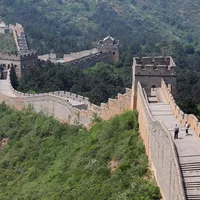127 乐山 大佛
Leshan|Grand Bouddha
Leshan|Giant Buddha
127 Leshan Giant Buddha
127 El Gran Buda de Leshan
127 Leshan'ın Büyük Buda'sı
乐山 大佛
Leshan|Giant Buddha
楽山|
Leshan Riesenbuddha
Leshan Giant Buddha
在 四川 * 省 西南部 , 有 一条 从北向南 流 的 大河 , 叫 岷江 *。
|||||||||||Minjiang
|Sichuan|province|the southwest part||a river|from north to south|flow||the big river||the Min River
||||||北から南へ|||||
Im südwestlichen Teil von Sichuan* fließt ein großer Fluss namens Minjiang*, der von Norden nach Süden fließt.
In the southwestern province of Sichuan, there is a large river that flows from north to south, called the Lijiang River*.
Dans le sud-ouest de la province du Sichuan, il y a une grande rivière qui coule du nord au sud, appelée Minjiang.
四川省の南西部には、北から南へ流れる大河があり、名前は岷江です。
传说 * 在 一千二百多年 以前 , 岷江 水流 很 急 , 常常 打翻 * 江 上 的 船只 *, 淹死 * 不少 过河 的 人 。
||il y a plus de mille deux cents ans|||||||||||bateaux|||||
Legend||over twelve hundred years||the Min River|river current||fast|often|capsized|river|||boats|drowned||crossing the river||
||||岷江|||||||||船|溺死||川を渡る||
Legende* Vor mehr als 1200 Jahren war die Strömung des Minjiang-Flusses sehr schnell, sie stürzte oft *Boote* auf dem Fluss und ertrank* viele Menschen, die den Fluss überquerten.
According to legend, over 1,200 years ago, the Lancang River was very turbulent and often overturned the ships on the river*, drowning many people who crossed the river.
Il y a plus de mille deux cents ans, la rivière Minjiang s'écoulait très vite, renversant souvent les bateaux sur la rivière et noyant de nombreuses personnes qui tentaient de traverser.
伝説によると、1200年以上前、岷江の水流はとても速く、よく川の船をひっくり返し、多くの渡る人々を溺れさせました。
当时 有 一个 和尚 *, 想 借神 的 力量 保护 船只 的 安全 , 于是 他 提出 了 在 江边 修 一个 大佛 * 的 建议 。
|||||||||||||||||au bord de la rivière|||||
At that time|||monk||borrowing the power of a god||power|protection|the boat||safety|so||proposed|||the riverside|build||Giant Buddha||suggestion
|||||神の|||守る|||||||||川辺|||||
Damals wollte ein Mönch* die Macht der Götter nutzen, um die Sicherheit des Schiffes zu schützen, und schlug vor, einen großen Buddha* am Fluss zu bauen.
At that time, there was a monk* who wanted to use God's power to protect the safety of the vessel. He then proposed a proposal to build a big Buddha on the riverside.
À cette époque, il y avait un moine qui souhaitait utiliser la force divine pour protéger la sécurité des bateaux, il a donc proposé de construire un grand Bouddha sur la rive de la rivière.
その時、一人の僧侶がいて、神の力を借りて船の安全を守りたいと思い、川のそばに大仏を作る提案をしました。
从那时起 , 很多 石匠 * 整整 花 了 九十年 时间 , 终于 在 江边 的 石壁 * 上修 了 一座 大石 佛 。
||maçon||||quatre-vingt-dix ans|||||||a construit|||grande pierre|
from that time||stonemasons|exactly|spent||ninety years||finally||by the river||stone wall|upgraded||a large stone Buddha|big stone|stone Buddha
||||||九十年||||||石壁|を彫った|||大きな石|
Seitdem haben viele Maurer* neunzig Jahre verbracht und schließlich einen großen steinernen Buddha an der Steinmauer* am Fluss gebaut.
Since then, many masons* have spent a total of ninety years and finally built a large stone Buddha on the stone walls* of the riverside.
その時から、多くの石工が整整90年の歳月をかけて、ようやく川辺の石壁に大きな石仏を修築しました。
那 就是 中 国 现在 最大 的 石佛 -- 乐山 * 大佛 。
|||||||Buddha en pierre||
|||China||largest||Stone Buddha|Leshan|
|||||||石仏|楽山|大仏
That is China's largest stone Buddha, the Leshan Giant Buddha.
C'est le plus grand bouddha de pierre en Chine maintenant - le Grand Bouddha de Leshan.
それが中国で現在最大の石仏、楽山大仏です。
大佛 身高 七十一 米 , 他 的 头长 十四 米 七 , 眼睛 长三 米 三 。
||||||mesure|||||trois||
Giant Buddha|height|seventy-one|meters|||head length|fourteen||seven||three meters|meters|three
||七十一|||||||||||
The Buddha is 71 meters tall. His head is 14 meters long and his eyes are three meters long.
Le Grand Bouddha mesure soixante-onze mètres de haut, sa tête mesure quatorze mètres sept, et ses yeux mesurent trois mètres trois.
大仏の高さは71メートルで、頭の長さは14メートル7センチ、目の長さは3メートル3センチです。
两只 耳朵 长 六米 二 。
|||six mètres|
two|ears||six meters|
|||6メートル|
Beide Ohren sind 6 Meter lang.
Two ears are six meters long.
Ses deux oreilles mesurent six mètres deux.
二つの耳は六メートル長い。
他 的 耳朵 里 能 藏 两个 人 !
|||||cacher||
||ears|||hide||
|||||隠れる||
There are two people in his ears!
彼の耳の中に二人を隠すことができます!
人们 在 大佛 的 头颈 * 和 耳朵 后面 修 了 排水 * 通道 *, 所以 不管 下多大 的 雨 , 大佛 也 不会 被 冲走 。
||||||||||||||quelle que soit la taille|||||||
||||head and neck|||behind|built||drainage|passageway|therefore|no matter|no matter how heavy||rain||||passive marker|washed away
||||||||||排水|||||||||||流走
Die Menschen haben Abflusskanäle* hinter Kopf, Nacken* und Ohren des Buddha gebaut, so dass der Buddha nicht weggespült wird, egal wie viel Regen es regnet.
People have built drainage channels* behind the head and neck of the Buddha, so no matter how big the rain, the Buddha will not be washed away.
Les gens ont construit des canaux de drainage derrière la tête et le cou du Grand Bouddha, donc peu importe la quantité de pluie, le Grand Bouddha ne sera pas emporté.
人々は大仏の頭と耳の後ろに排水通路を作ったので、どんなに大雨が降っても大仏は流されません。
如果 你 去 中国 , 请 你 去 四川 看 乐山 大佛 , 他会 给 你 带来 好运气 。
If you||||||||visit||||||bring you|good luck
Wenn Sie nach China reisen, gehen Sie bitte nach Sichuan, um den Leshan Giant Buddha zu sehen, er wird Ihnen viel Glück bringen.
If you go to China, please go to Sichuan to see Leshan Buddha. He will bring you good luck.
Si tu vas en Chine, s'il te plaît, va voir le Grand Bouddha de Leshan au Sichuan, il te portera chance.
中国に行くなら、四川に行って楽山大仏を見てください。彼はあなたに幸運をもたらすでしょう。

